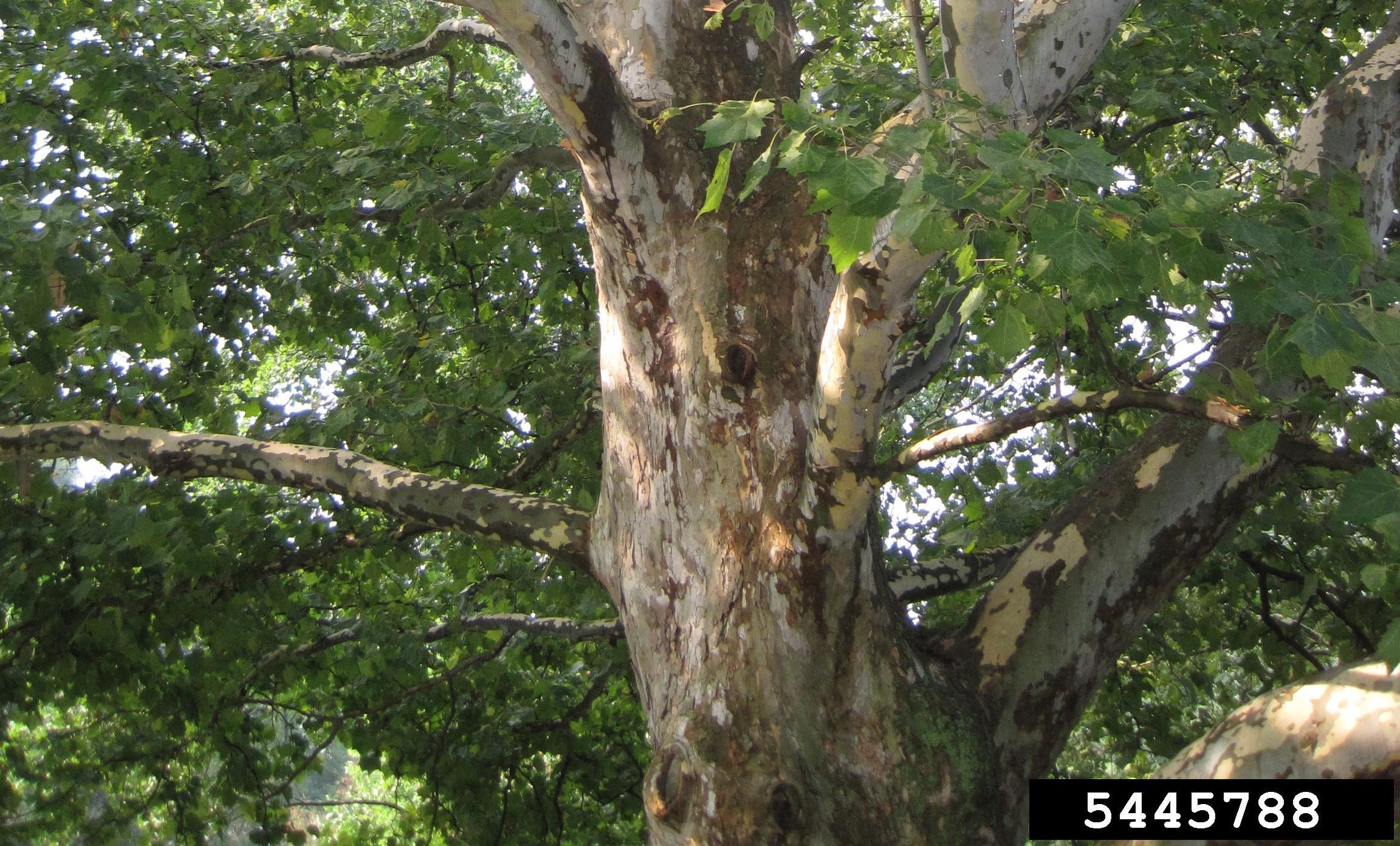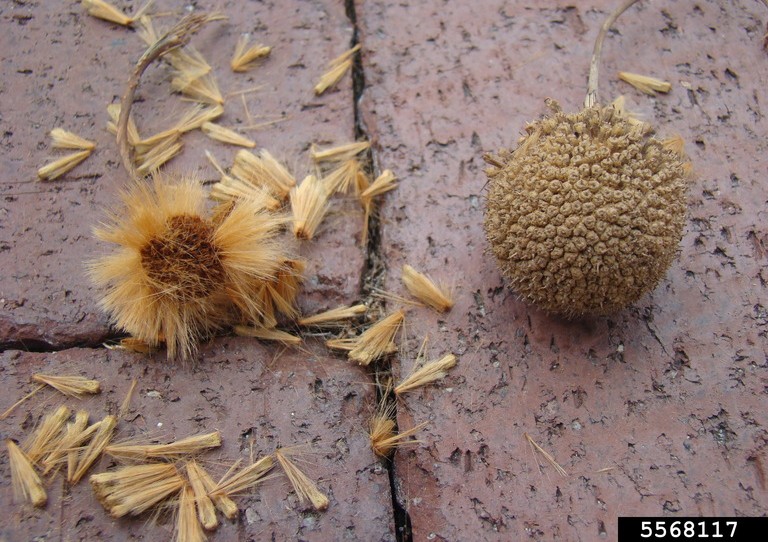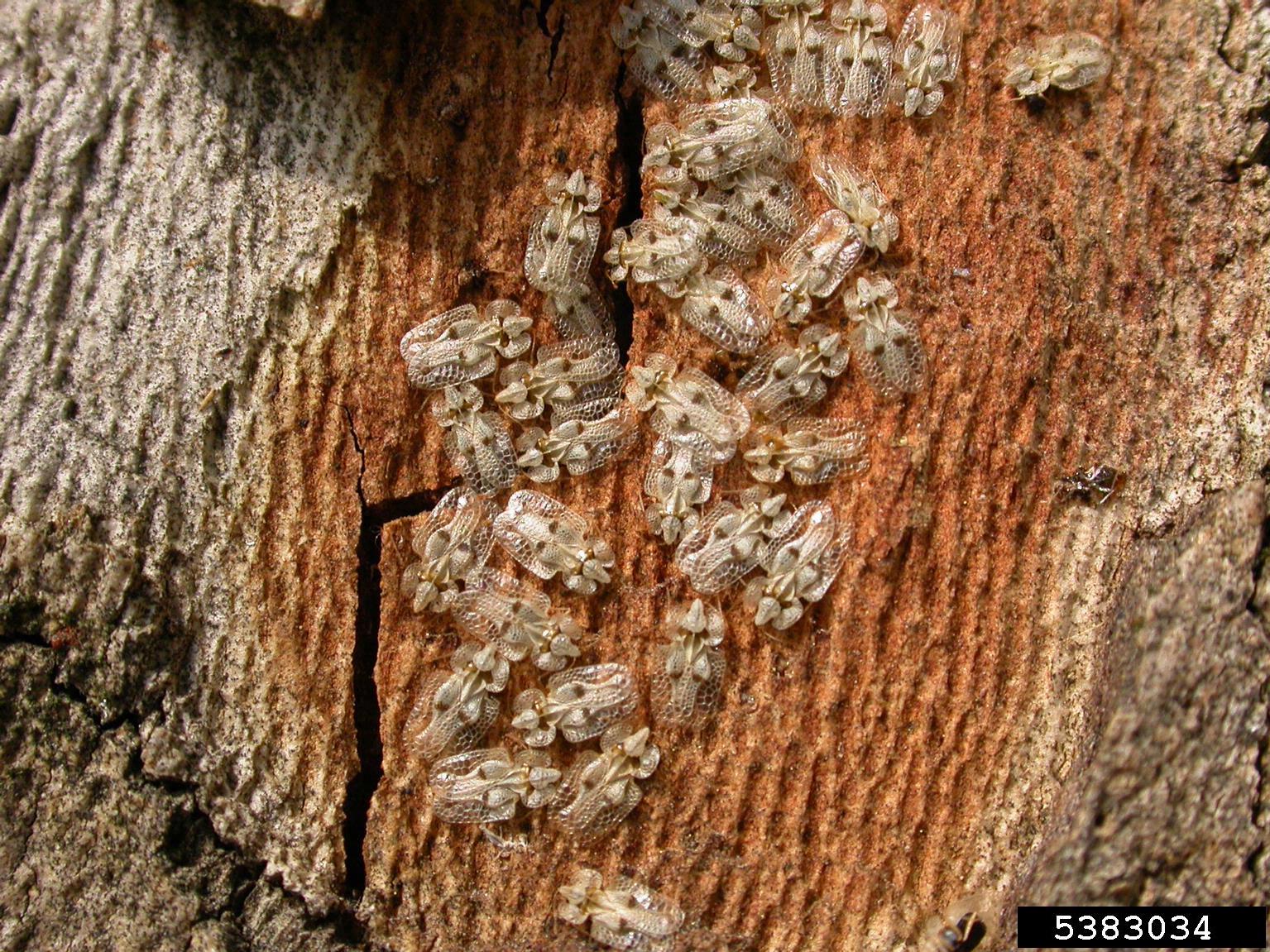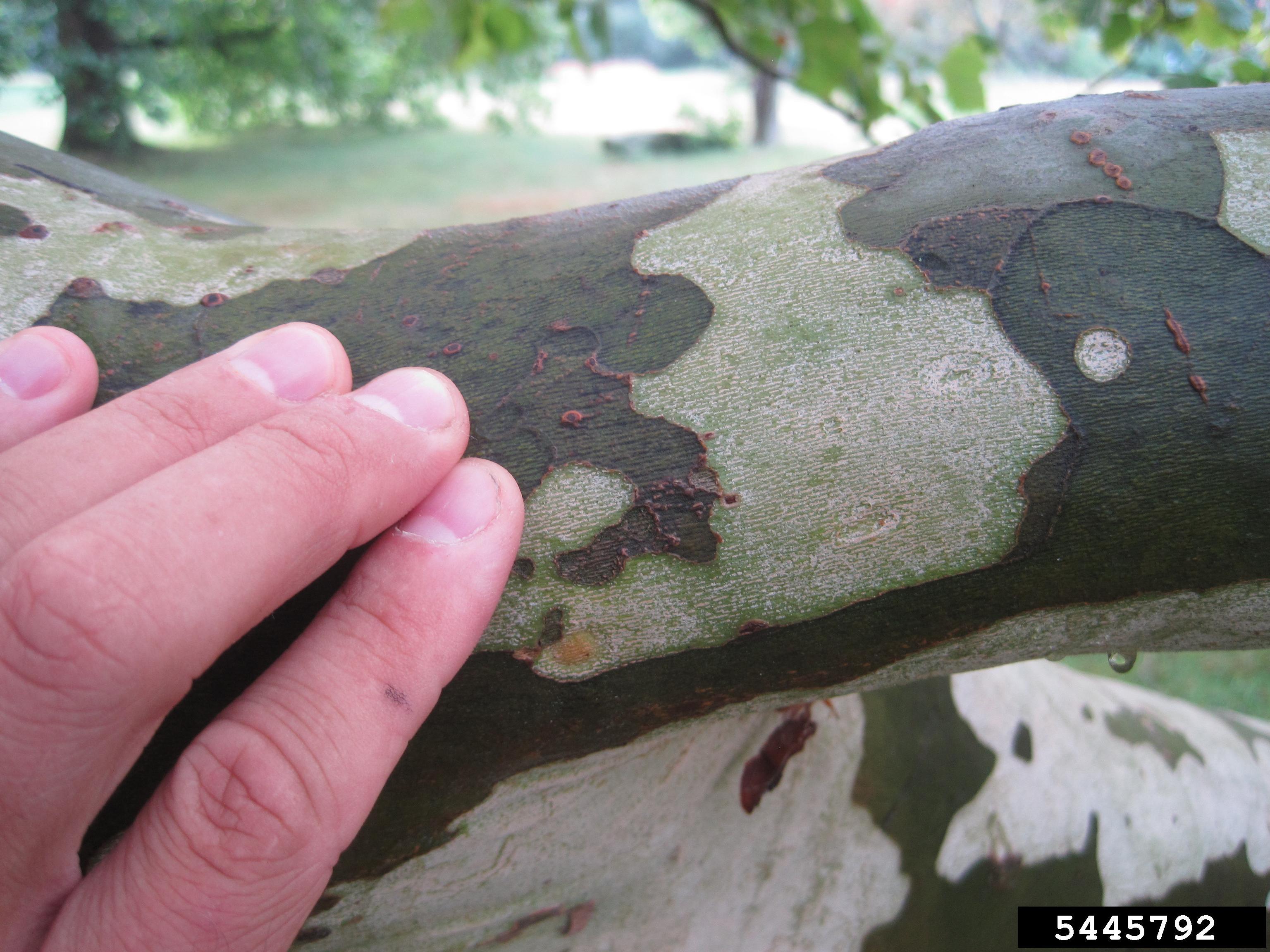Tree Highlight: American Sycamore
American sycamore
Platanus occidentalis (Family Platanaceae)
American sycamore canopy, showing its large leaves and patchy bark
The basics
The American sycamore (Platanus occidentalis) is a large, fast-growing and adaptable tree, growing successfully in a wide range of conditions. It is native to the eastern and central United States, the mountains of northeastern Mexico, and southern Canada. Sycamores have unique, light-colored smooth bark that peels in large scales, but is darker and coarser at the base of large trees.
Did you know?
- The national champion American sycamore is 100 feet tall, almost 12 feet in diameter, and is found in Ashland County, Ohio.
- American sycamore seeds are round, fuzzy balls that break into tiny pieces able to be carried by the wind or float on water.
- American sycamore is crossed with the European sycamore to make the “hybrid plane tree,” one of the most widely planted trees in city streets worldwide.
American sycamore fruits contain many fluffy seeds
The sycamore lace bug can be found feeding on the leaves or underneath the bark
Wildlife
- Sycamore fruits contain many seeds that are eaten by several species of birds, including goldfinches and chickadees.
- As sycamores age, they develop hollow trunks and cavities for raccoons, squirrels, bats, and nesting birds like the eastern screech owl and wood duck.
- Sycamore lace bugs and leaf beetles feed on sycamore leaves. Lace bugs can be spotted in the winter hibernating underneath the bark scales.
Uses
- Sycamores are excellent shade trees and are often planted in recreational areas. Their unique bark and broad leaves make them a beautiful addition to any landscape.
- The wood from sycamore is used for making furniture, butcher blocks, and musical instruments. It is strong and has an attractive grain.
- Sycamores grow well along waterways and their extensive root systems reduce erosion by holding soil in place.
The distinctive, patchy American sycamore bark
Benefits
Over a 20-year period, a healthy American sycamore with a diameter of 25 inches will offset 9,418 car miles worth of CO2, absorb enough stormwater to fill 2,940 bathtubs, and remove an amount of pollution from the air – in gaseous and particulate form – equivalent in weight to 207 smartphones! Learn more at: https://mytree.itreetools.org
Sycamore Tree of the Week video
By University of Kentucky Forestry and Natural Resources Extension.
Click to watchContact us: ufi@uky.edu
Images sourced from forestyimages.org





